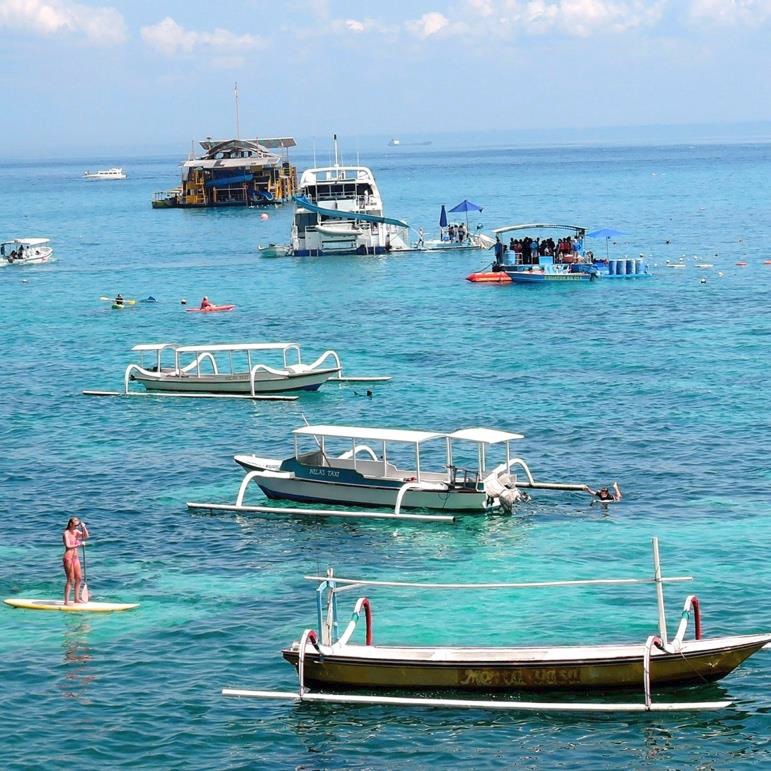Bali, Indonesia (multiple communities)
Bali, Indonesia
Home to the highest marine biodiversity on earth, the Indonesian province of Bali is located between Java to the west and Lombok to the east. Its four million inhabitants are intimately linked to the sea as a source of livelihoods, food security and culture, and engage in activities such as tourism and commercial fisheries. Communities in Bali face a combination of threats that include overfishing, uncoordinated coastal development, pollution, and damaging fishing practices. To address these problems, bridging organizations are helping these Balinese communities work toward integrative conservation outcomes.
Top environmental challenge faced by the community (currently or in the past 10 years):
Balinese waters face a combination of threats that include overfishing and destructive fishing practices, uncoordinated coastal development, sewage and garbage disposal at sea, dredging and reef channel development, and other damaging practices. Intensive utilization of coastal areas by different and sometimes competing interests has meant that the reality of coastal-marine conservation here is remarkably complex and the potential for conflict is high.
How the environmental challenge has affected local livelihoods:
Options for conservation in this region are confounded by the challenges of a still-evolving decentralization movement, and social, economic, and political complexities such as overlapping authorities, multiple interests and policy domains, and unresolved boundaries of customary tenure. In many communities, different actors do not interact with one another, and cooperation with regards to resource management can be poor. The presence of multiple actors with different interests implies significant trade-offs in the face of diverse, and potentially conflicting, objectives such as food security, livelihood development and biodiversity conservation.
Community response to the challenge, through environmental stewardship (conservation) initiatives that improve environmental well-being and support sustainable livelihoods:
Extent to which governmental policy (at local, regional or national levels, as relevant) has supported, or been contrary to, the community's responses to the environmental challenge:
Coastal and marine ecosystems in Indonesia are governed under a partially decentralized system. Decentralization has also promoted a system of shared responsibility among a greater range of stakeholders, including opportunities for community-based and collaborative approaches. Through decentralization, regency and city governments across Indonesia were given authority to manage their coastal zone up to four nautical miles from shore, and the province up to 12 nautical miles. However, decentralization has also contributed to political tensions between levels, governance fragmentation and conflicting government policies.
Keywords: Ecosystem
Marine
Keywords: Resources
Fish, Water
Keywords: Big Issues
Biodiversity, Human-wellbeing, Resource use
Keywords: Solutions
Empowerment, Governance/Management, Local/Traditional knowledge, Protected areas, Public participation, User-rights
Contributed by: Samantha Berdej, Environmental Change and Governance Group, University of Waterloo
The information provided and opinions expressed above are the responsibility of the contributor and do not necessarily reflect the views and analysis of the Community Conservation Research Network (CCRN), nor those of all members of the community described.
For any questions or comments on Communities in Action, please contact us
here.



